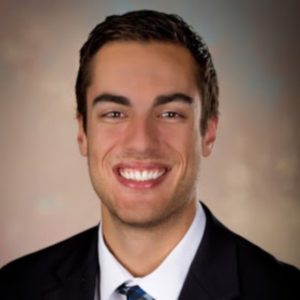From the Heart: COVID-19 Column
 By Tyler J. Guinn, D.D.S.
By Tyler J. Guinn, D.D.S.
When it comes to a pandemic, obviously there will be challenges that are presented. As an endodontics resident, there are many. However, there are a couple which I believe may be shared by more than a few of us, and I have been asked to speak about a couple of challenges faced by myself, and perhaps all endodontics residents by extension. As I, like many others, approach my last semester of residency, I certainly have concerns. Missing over three months of clinic will surely come up at some point once I graduate, right? How do I explain for those missed months to a future employer? I never would have guessed that scenario would become a reality. Yet, here we are. With that in mind, how does a resident stay mentally positive during a time of so much uncertainty for the future, while also being hounded by people asking, “what’s your plan for when you graduate?” I’ll admit, I am no expert on either of these topics. But, if any of you are like me, I hope that these tips will help in some way.
Let us address the first challenge: how to explain this to an employer. Well, it’ll be tough. There’s no doubt about that. If we can’t go back in time like Dr. Strange, what can we do? Well, we can make our remaining time as dense as possible. Ok, yea, sort of a weird adjective to describe residency, but it’s the truth. We can’t extend time, but we can get the most out of it as possible. Personally, I felt there were and still are a few ways to accomplish this.
- Take every emergency case. At BU, we regularly see emergency cases when our original treatment doesn’t work out. While we usually strive for these extra experiences, even before the pandemic, the importance of every clinic session weighs even heavier now given the circumstances. Therefore, every session counts.
- Learn from other’s experiences. If I didn’t have a patient, despite my best intentions, you can bet I was chatting my faculty’s ear off about cases, perhaps ad nauseum according to them. They have what I need, knowledge and experience- and I intend to gain that in any way that I can. If nothing else is working out while in clinic, at least make the most of it and have those conversations.
- Moonlight. Either way we put it, each case is a repetition. Moonlighting adds repetition. More repetition builds confidence and expertise. Thus if you can, do it. If you can’t, go back to the basics: extracted teeth. I can already feel everyone’s eyes rolling. “I’ve been working on patients for X amount of months, seriously Ty, extracted teeth?” Well, yea. Again, repetition yields results. We have to find a way to perform root canals. If that’s on extracted teeth? So be it. As a resident, you’re never too good to practice on extracted teeth.
Alright, so we’re sitting in the interview, and they ask the question about missing those three months. We reply with ‘I took on more emergency treatments’, or ‘I made sure to talk with my faculty about difficult case scenarios’, or ‘I moonlighted.’ Sure, each of those responses are great on their own, but it doesn’t tell the full story. What’s the full story? The story is that we adapted. We made lemonade out of lemons. We were thrown into a storm, and we found our way out. To me, that means more than a case number per se. Our employers need to see that we can be drop-kicked by COVID and get back up. We owe it to ourselves, and more so to our patients, to be that resilient.
Keeping a positive outlook during a time where every clinic session has become a more coveted event, can quickly see oneself grinding to a halt if the treatment doesn’t go through. I asked myself what I can do to minimize this feeling, and how to snap out of such a mindset. The short answer for me is to disconnect. Having a few hobbies allows me to get away from it all for a short while. Whether it’s following sports, exercising, or even getting into a new book something is better than nothing compared to staring at a screen full of people ranting about whether pineapple should be put on pizza (it should, and I stand by that decision). It sets up an opportunity for a reset before we know what the next day brings.
Additionally, this pandemic has forced me to step back and evaluate what really makes me happy in life. I feel that we hear these types of phrases all too often. And, to be honest, these points may sound cliché. Despite that, it doesn’t make it any more or less true, or important especially given a time like this where many of us will not be able to see our families for the holidays. To this end I focused on spending time with my wife, facetiming our families back home, and kept in close contact with friends despite our physical distances. These activities helped bring calmness and positivity to me even when things weren’t seeming to go as planned. And for that, I’m thankful. Going forward I believe this past year will allow us future Endodontists to be more resilient to what the world brings. I believe the habits we created during this time will prove beneficial when the rigors of practice start to weight us down. In closing, I believe our best days are yet to come, even if we were forced through quite a few bad ones in order to realize it.
Dr. Tyler J. Guinn is an endodontics resident at Boston University Henry M. Goldman School of Dental Medicine. He is also resident member of the AAE’s Public and Professional Relations Committee.




